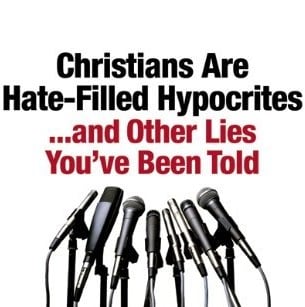 Are today’s youth abandoning the Church? Is there cause for alarm? Or is the condition with youth in the church today about the same as always?
Are today’s youth abandoning the Church? Is there cause for alarm? Or is the condition with youth in the church today about the same as always?
These are questions that many people are asking and many people are also answering them.
Often in uninformed ways.
For about a decade I was listening to apocalyptic warnings, and while I tended to minimize such, I was on the bandwagon. I, too, believed the reports. But this year two valuable books came out that chased some of this away as myth-making and fear-mongering.
Hence, I’m blogging through Brad Wright’s new book: Christians Are Hate-Filled Hypocrites…and Other Lies You’ve Been Told: A Sociologist Shatters Myths From the Secular and Christian Media
.
.
Here are some highlights from Wright’s 3d chp, one asking if we are losing our youth.
Josh McDowell: “It is clear that we have all but lost our young people to a godless culture.” Josh’s statement is typical.
It’s also not in tune with good social-scientific data. For instance, there was a widely circulating rumor (I heard it) that said 4% of our evangelical youth will be evangelicals when they get older. Wright chased the number into bad stats. Here are some better ones:
1. Young adults are less religious, but what does this mean?
2. 12% in the 70s and 80s were unaffiliated; now 25% are. But this is the same number as with other age groups.
3. Currently, 22% of young adults are evangelicals; that’s up from 21% in the 70s but down from 25% in the 90s.
4. Negatively, unaffiliated has increased for young adults.
5. Positively, the number who are affiliated with churches has remained the same.
6. Those affiliated with Evangelicals, Black Prots, and RCC are the same as in the 70s. (Mainliners are down.)
7. No sign of cataclysmic or big changes.
Big point: young adults have always been less affiliated; when they get married and have children they return to their faith. Part of the life cycle is reflected in this.
Can he predict: Wright throws sand in the eyes of those who want to predict. There is one chart, a good one on p. 71, that would indicate that current young adults will be as religious as their parents and grandparents when they become older. He, however, says predicting is a fool’s game and he won’t join the game. But there is no compelling evidence for a cataclysmic change.

